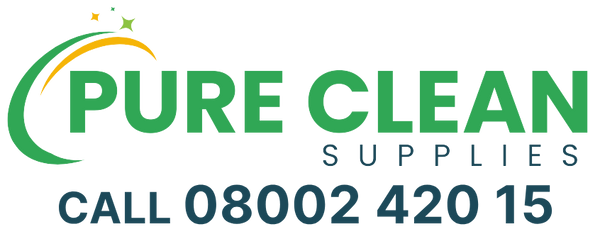






Essential Cleaning Chemicals for the Hospitality, Dairy Industry, Office, Workshops, and Transport Cleaning
In various industries, maintaining cleanliness isn't just about appearance; it's crucial for safety, efficiency, and compliance with regulations. Different environments require specialised cleaning chemicals tailored to their unique needs. This guide explores the essential cleaning chemicals specifically designed for the hospitality industry, dairy industry, office spaces, workshops, and transport cleaning.
Essential Cleaning You Should Know:
1. Hospitality Industry
The hospitality industry, including hotels, restaurants, and catering services, demands impeccable hygiene. Cleanliness directly impacts customer satisfaction and health, making the choice of cleaning chemicals vital.
- Surface Disinfectants: These are critical in the hospitality sector to ensure all surfaces are free from harmful bacteria and viruses. Quaternary ammonium compounds (quats) and hydrogen peroxide-based cleaners are commonly used due to their broad-spectrum effectiveness.
- Glass Cleaners: Crystal-clear windows and mirrors are a must in hotels and restaurants. Ammonia-based glass cleaners remove smudges and streaks, providing a flawless finish that enhances the overall appearance of the establishment.
- Degreasers: In kitchens, grease build-up can be a major issue. Alkaline-based degreasers efficiently break down fats, oils, and grease on kitchen equipment and surfaces, ensuring a sanitary cooking environment.
- Carpet Cleaners: Carpets in hotels and restaurants need to be spotless. Specialized carpet shampoos and spot removers with enzymatic action helps break down organic stains and odours, keeping carpets fresh and inviting.
2. Dairy Industry
The dairy industry requires stringent hygiene standards to prevent contamination and ensure product safety. Cleaning chemicals here must be effective yet gentle on equipment.
- Alkaline Cleaners: Used to remove organic soils, such as fats and proteins, from dairy processing equipment. These cleaners are essential for maintaining the sterility of milk processing equipment.
- Acid Cleaners: After alkaline cleaning, acid cleaners are used to remove mineral deposits, such as milk stone, which can harbour bacteria if not properly eliminated. Nitric or phosphoric acid-based cleaners are commonly used for this purpose.
- Sanitizers: Post-cleaning, equipment must be sanitized to eliminate any remaining bacteria. Chlorine-based and iodine-based sanitizers are widely used in the dairy industry due to their effectiveness against a broad range of microorganisms.
- Teat Disinfectants: For dairy farming, maintaining the health of the animals is crucial. Teat disinfectants, often iodine-based, help prevent mastitis by killing bacteria on the teats before and after milking.
3. Office Spaces
In office environments, cleanliness impacts both the health of employees and the overall working atmosphere. A range of cleaning chemicals is needed to maintain a safe and productive workplace.
- All-Purpose Cleaners: These are versatile and essential for daily cleaning tasks. They can be used on a variety of surfaces, from desks to countertops, to remove dirt, dust, and light stains.
- Disinfectant Wipes: With the ongoing emphasis on hygiene, disinfectant wipes are a must-have in offices. These wipes, often alcohol or quaternary ammonium-based, are convenient for quickly sanitizing high-touch surfaces like keyboards, door handles, and phones.
- Carpet and Upholstery Cleaners: Offices often have carpeted areas and upholstered furniture that need regular cleaning. Products with low-foaming formulations are preferred for use with extraction machines to effectively remove dirt without leaving residues.
- Air Fresheners: A clean office should also smell fresh. Air fresheners, particularly those that neutralize odours rather than mask them, are essential for maintaining a pleasant working environment.
4. Workshops
Workshops, especially those involved in mechanical or industrial work, require heavy-duty cleaning chemicals to handle tough grime and grease.
- Industrial Degreasers: These are powerful, solvent-based cleaners designed to remove heavy grease, oil, and grime from machinery, tools, and floors. They are essential in maintaining equipment and preventing safety hazards caused by slippery surfaces.
- Rust Removers: Corrosion can be a significant issue in workshops. Acid-based rust removers dissolve rust from metal surfaces, extending the life of tools and machinery.
- Floor Cleaners: Workshop floors can accumulate a lot of debris and spills. Heavy-duty floor cleaners, often with alkaline or solvent-based formulations, are required to break down and remove tough stains and oils.
- Hand Cleaners: Workers in workshops need effective hand cleaners to remove oil, grease, and dirt. Hand cleaners with scrubbing agents or solvents are often necessary to ensure thorough cleaning without damaging the skin.
5. Transport Cleaning
Vehicles, whether for personal use or commercial purposes, require specific cleaning chemicals to maintain their appearance and functionality.
- Vehicle Wash Detergents: These are specially formulated to remove road grime, dirt, and environmental pollutants from vehicles without damaging the paintwork. They often contain surfactants that lift and suspend dirt particles for easy rinsing.
- Glass Cleaners: For vehicles, clean windows are essential for safety. Ammonia-free glass cleaners are preferred as they prevent streaking and are safe for tinted windows.
- Interior Cleaners: The interiors of vehicles, particularly those used for public transport, require regular cleaning to remove dust, stains, and odours. Multi-surface cleaners are ideal for dashboards, seats, and other interior components.
- Engine Degreasers: These are used to clean the engine compartment, removing oil, grease, and grime that can affect performance. Solvent-based degreasers are commonly used due to their ability to break down tough deposits.
Essential
Each industry has specific needs when it comes to cleanliness, and the right cleaning chemicals can make a significant difference in maintaining hygiene, safety, and efficiency. By choosing the appropriate products for the hospitality industry, dairy industry, office spaces, workshops, and transport cleaning, businesses can ensure they meet the highest standards of cleanliness while protecting their assets and the people who interact with them.
